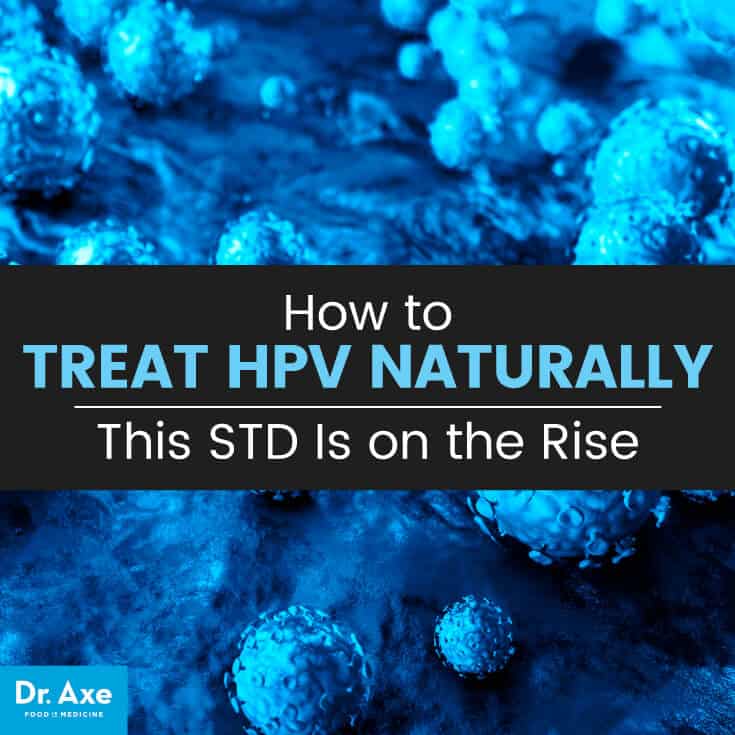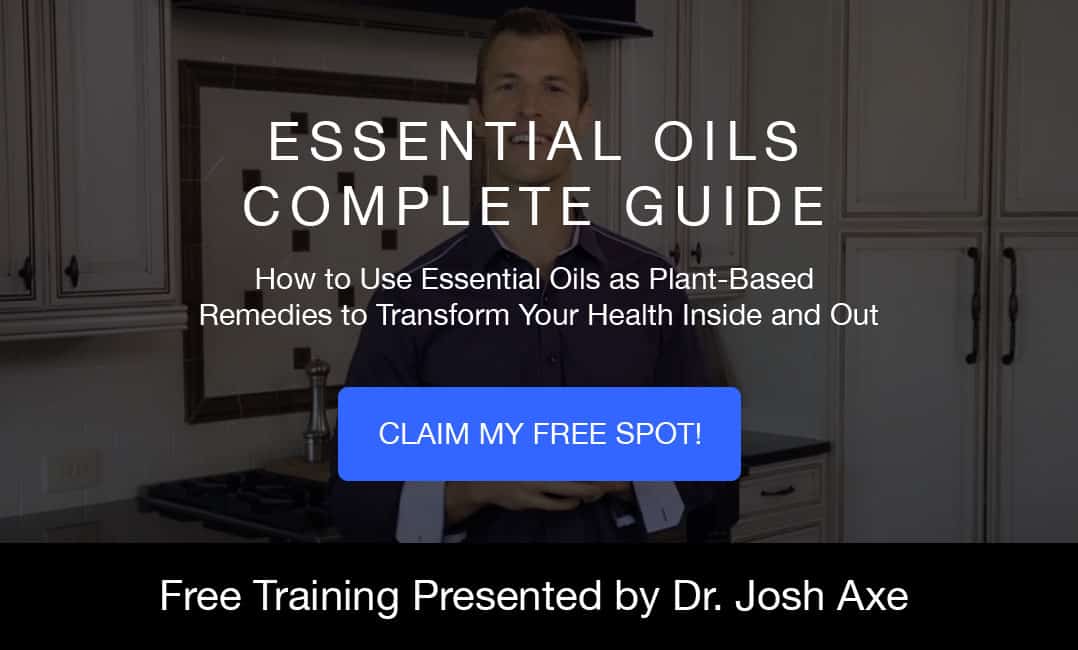
There is no more prevalent sexually transmitted disease (STD) in the United States than genital human papillomavirus (HPV), which can lead to genital warts, leaving many to wonder how to treat HPV naturally. It’s no wonder given just how staggering the numbers are.
A recent survey found that almost 50 percent of American adults between the ages of 18 to 59 are infected with genital HPV. The survey found that during 2013–2014, prevalence of any genital HPV was 42.5 percent among adults aged 18–59, 45.2 percent among men and 39.9 percent among women.
Prevalence of high-risk HPV — meaning HPV that can lead to cancers — was 22.7 percent among adults aged 18–59, 25.1 percent among men and 20.4 percent among women. Non-Hispanic black adults showed the highest prevalence for high-risk genital HPV and non-Hispanic Asian adults showed the lowest. Prevalence of high-risk oral HPV was higher among men than women in all races and Hispanic groups. (1)
About 79 million people in the U.S. have HPV. (2) Because of this, it’s more important than ever to know how to treat HPV. So let’s take a look at what HPV is exactly; common HPV symptoms, risk factors and causes; and how to treat HPV both conventionally and naturally.
What Is HPV? Common Symptoms
So, what is HPV? HPV is a group of very common — and highly infectious — viruses that may be shared during sexual activity through skin-to-skin contact. According to the World Health Organization, there are more than 100 types of HPV; 13 of these are high-risk, meaning they’re known to cause cancer. There are many HPV strains that are benign and don’t cause many issues, but HPV has also been linked with cancers of the anus, vulva, vagina and penis. Out of the 100 types, there are two types (16 and 18) that lead to 70 percent of cervical cancers and cervical lesions. Types 6 and 11 are non-cancer causing, but they can cause genital warts and respiratory papillomatosis, which causes tumors to grow in the respiratory tract. (3)
Most people don’t know they have HPV, and HPV symptoms often clear up on their own. Depending on the type of HPV virus, human papillomavirus infection symptoms may include: (4)
- Genital warts: Usually white with a raised “cauliflower” top. A genital wart may be uncomfortable or cause pain, but it usually doesn’t itch. Genital warts in women often appear on the vulva but may also be found inside the vagina, on the cervix or around the anus. In men, genital warts are typically found on the penis or scrotum or around the anus.
- Common warts: Rough bumps that are usually found on the hands, fingers or elbows.
- Plantar warts: Hard, grainy, fleshy warts that appear on the soles of the feet and may become flattened due to pressure on the feet. Plantar warts may cause pain when standing. Because HPV is so contagious, it’s easy for it to spread, say, from a towel used by an infected person. Be sure to wear shoes or sandals when walking around public places, such as community swimming pools or gym showers.
- Flat warts: Depending on the strain of HPV, flat-topped warts may appear on the face, the legs in women and in the beard area on men.
- Oral warts: Lesions may form in the mouth.
HPV-16 is a high-risk subtype that can lead to oropharyngeal (mouth and pharynx) cancer. Signs of HPV-positive oral cancer include the following: (5)
Late signs of the disease:
- Trouble swallowing
- Coughing up blood
- A lump on the neck or in the cheek
- Ongoing hoarseness
Other signs and symptoms that may indicate oral cancers: (6)
- Sore throat
- White or red patch on the tonsils
- Jaw pain or swelling
- Numb tongue
- Constant earaches
- Unexplained weight loss
- Enlarged lymph nodes
HPV Risk Factors and Causes:
Nearly every sexually active person will get HPV at some point. How do you get HPV? It’s usually caused by vaginal or anal sex, but it can also spread through oral sex. Because HPV spreads through skin-to-skin contact, sexual intercourse isn’t necessary to catch it. In fact, sometimes an infected mother can infect her newborn during delivery. (7, 8) Most anyone who is sexually active is at risk for HPV, but the level of risk can be lowered by using a condom or avoiding sex altogether.

How to Treat HPV: Conventional Treatment
Can you treat HPV? Most cases of genital warts go away on their own, but there is no cure for the HPV infection. You may want to know how to treat HPV, however. HPV treatment may include antiviral drugs, topical medications or minor surgery. There is an HPV home test launching this year, but for now, a visit to the doctor is required for diagnosis.
To check for evidence of high-risk HPV in women, a doctor may swab the cervix to collect cells, much like having a pap smear. A physician can also check a woman’s cervix, vagina and vulva by doing a colposcopy test. Usually, HPV will clear up on its own. If you’re pregnant or trying to conceive, you should speak with your doctor before starting any treatment. (9)
Can men be tested for HPV? Some health care providers will screen men at risk for anal cancer by performing an anal pap test. Aside from abstaining from sex, using condoms the each time a man has sex is one of the best ways for him to prevent getting, or spreading, the HPV virus. (10)
Although there is no cure for HPV, it’s possible to get an HPV vaccine if you choose to do so. There are three vaccines available: Cervarix, Gardasil and Gardasil-9. Men and women can both get vaccinated. The Centers for Disease Control and Prevention recommends that all boys and girls ages 11 or 12 years old get vaccinated and that males through age 21 and females through age 26 get catch-up vaccines if they were not vaccinated at an earlier age.
There are, of course, concerns with vaccines. It’s important to note that side effects can occur, particularly with Gardasil-9. Side effects can include: pain, swelling, redness, itching, bruising, bleeding, lump at the site of the shot, headache, fever, dizziness, tiredness, diarrhea, abdominal pain and sore throat. If you choose to vaccinate, discuss any concerns or pre-existing risk factors with your physician. If you choose to not get vaccinated, you may wonder how to treat HPV. Read on to learn how to treat HPV beyond just the HPV vaccine.
How to Treat HPV Naturally
Here, I lay out how to treat HPV naturally. Much like treating herpes, natural antiviral treatments can help. There are many home remedies that contain antiviral properties, such as herbal supplements, using essential oils and eating certain foods. Try these remedies to keep HPV symptoms at bay.
1. Diet
Eat a wart-removal diet filled with lots of antiviral herbs. Help prevent or get rid of warts by consuming immune-boosting foods:
- Foods high in vitamin C, such as citrus fruits, bell peppers and strawberries
- Probiotic foods like fermented vegetables, such as kimchi or sauerkraut and live-cultured yogurt and Greek yogurt
- Green leafy vegetables, which provide vitamin A and important minerals
- High-selenium foods, such as Brazil nuts and mushrooms
- Raw cheeses made from goat’s milk, sheep’s milk and A2 cow’s milk
- Kvass, a fermented drink made from rye bread with lactobacilli probiotics and has blood- and liver-cleansing properties
- Kombucha, a fermented tea high rich in probiotics and B vitamins
- Goat’s milk kefir or coconut kefir — contain lots of probiotics; the goat’s milk version has more than the coconut version, which is dairy-free
2. Antiviral Herbs
Ingest or apply antiviral herbs to boost the immune system and inhibit viruses, as well as to provide cardiovascular, digestive and anti-inflammatory support. You can consume antiviral herbs as herbal teas, infusions or herbal-infused oils. The top 10 antiviral herbs are:
- Elderberry
- Echinacea
- Calendula
- Garlic
- Astragalus root
- Cat’s claw
- Ginger
- Licorice root
- Olive leaf
- Oregano and oregano oil
Goldenseal is another herbal option, which is a great antimicrobial that acts as an effective natural antibiotic and immune system booster.

3. Essential Oils
Not only can you use essential oils made from the antiviral herbs listed above, but you can also try other oils, such as tea tree oil and thuja oil. Tea tree oil is known for its antimicrobial properties and can be may be effective as a topical ointment when mixed with a carrier oil like coconut oil when blended in a 1:1 ratio. Do not use tea tree oil internally as it can be poisonous.
Thuja oil comes from the Thuja tree. Although it’s not a remedy commonly heard of, it’s a preferred Ayurvedic remedy. It can be used to eliminate virus symptoms, including warts. Use caution when using thuja oil, and be sure to dilute it significantly because it can be an irritant. It contains thujone, which can be highly toxic.
4. Homemade Wart Remover
You may want to know, “Can you get rid of genital warts?” In addition to using tea tree oil or thuja oil to help get rid of symptoms, you can make a DIY wart remover to apply directly to oral and common warts. The same recipe can be used for genital warts, but don’t include oregano oil as it can irritate delicate skin.
3 Ways to Prevent HPV
Since there is no HPV cure, prevention is your best bet. Other than not engaging in any sexual activity, you can take the following steps to avoid this most common STD:
- Use condoms. Condoms are not a full-proof prevention method since HPV spreads through skin-to-skin contact. However, proper condom use can help protect against penile, vaginal and anal HPV infection, as well as other STDs. (11, 12, 13)
- Avoid sex with anyone with visible signs of HPV. Basically, if your partner has genital or oral warts, it’s wise not to engage in sexual activity with him or her.
- Have sex only with a monogamous partner. Limiting the number of sexual partners reduces the risk of HPV infection or any STD infection. Having sex with a monogamous partner lowers risk of HPV infection considerably. However, since an HPV infection can lie dormant and show no visible signs for years, it’s still possible to share the HPV virus, and it can be hard to figure out when the infection started. It’s important to be prepared to talk with your partner and answer any questions he or she might have.
HPV Precautions
Abstaining from sex is the only natural way to avoid getting infected with HPV. Be sure to mix essential oils with carrier oils before applying to genital warts as some oils can irritate delicate skin. If you’re pregnant or nursing, consult with your physician or natural health doctor before using any HPV treatments.
Final Thoughts on How to Treat HVP
- HPV is a highly contagious STD. There is no cure for it.
- The CDC recommends vaccinating with one of three HPV vaccines.
- Conventional treatments include topical creams, antiviral medications and minor surgery.
- Natural ways for how to treat HPV include a wart-removal diet, antiviral herbs, essential oils and a DIY wart remover.
- Prevention is key. Use condoms, abstain from sex or only have a monogamous partner.
Read Next: How to Get Rid of Warts Naturally
If you feel like you could use some more in depth information on essential oils, Dr. Josh Axe is hosting a free webinar going over, in great detail, uses and tips for using essential oils. Click below to learn more.
